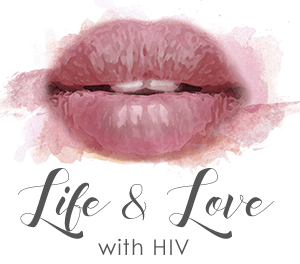
Love in the time of HIV/AIDS
December 1, 2009
AIDS ACTION NOW: Fuck Positive Women
November 30, 2011
Love in the time of HIV/AIDS
December 1, 2009
AIDS ACTION NOW: Fuck Positive Women
November 30, 2011By POZ.COM
Women living with HIV are significantly more likely to experience sexual problems compared with those not living with the virus, according to new results from the Women’s Interagency HIV Study (WIHS) published online ahead of print by the Journal of Acquired Immune Deficiency Syndromes (JAIDS).
Research on the topic of women’s sexual behavior, as it relates to HIV infection, has primarily focused on the biological and behavioral factors connected with transmission of the virus. While there’s no doubting the importance of research analyzing HIV transmission dynamics among women, notably condom use and determinants of sexual risk behavior, other aspects of sexual health, including satisfaction with sexual relationships, have largely been ignored.
Sexual function problems are common among women and include pain and difficulties or limitations in sexual interest, desire, arousal and orgasm during sexual activity. Data from the 1992 National Health and Social Life Survey, the most recent nationally representative study on sexuality among younger adults in the United States, suggest that 40 percent of sexually active women ages 18 to 59 report symptoms indicative of sexual problems over a 12-month period.
There is reason to believe that sexual problems occur even more frequently among HIV-positive women than HIV-negative women. Chronic health conditions and diseases such as diabetes, cancer, vascular disease, arthritis and hypertension have all been associated with impaired sexual functioning, as are certain drugs used to treat these conditions. Yet the study of sexual dysfunction among women living with HIV—a stigmatizing infectious disease that is frequently accompanied by shame, fear and misperceptions—has been limited, at best.
Data on sexual functioning was collected as part of the Women’s Interagency HIV Study (WIHS), an ongoing cohort of HIV infection among women in the United States. More than 1,800 HIV-positive and HIV-negative women completed a study visit that included taking a brief questionnaire called the Female Sexual Function Index (FSFI), which was developed to assess sexual functioning in clinical trials.
"Sexual function problems are common among women and include pain and difficulties or limitations in sexual interest, desire, arousal and orgasm during sexual activity."
Women with HIV reported greater sexual problems compared with women not infected with HIV, Tracey Wilson, PhD, of Downstate Medical Center in Brooklyn, New York, and her WIHS colleagues report. Whereas the average FSFI score was 18 among the HIV-negative women, it was 13.8 among women living with HIV. This difference was highly statistically significant, meaning that it was too large to have occurred by chance. (Click here to learn more about the FSFI questionnaire and its scoring.)
As would be expected from past research on sexual functioning, WIHS participants—both HIV positive and HIV negative—also reported lower sexual function if they were classified as menopausal, had symptoms indicative of depression, if they reported not being in a relationship or were taking medications for mental health problems, seizures, hypertension or heart disease. However, including these factors did not mitigate the influence of HIV infection on impaired sexual function scores.
CD4 counts were also associated with Female Sexual Function Index scores. For example, women with CD4 counts of 199 cells or lower were more likely to report lower sexual functioning compared with those whose cell count was 200 or higher.
Wilson’s group noted a high degree of intentional abstinence in the study—about 23 percent of the HIV-negative women and 35 percent of the HIV-positive women hadn’t engaged in any vaginal, anal or oral sex since their previous WIHS study visit six months earlier. This finding raises key questions about the true nature of sexual problems among HIV-positive women and, as Wilson’s group suggested, should be studied further to better understand sexual function measures in the context of infectious diseases.
Limitations in the data also prevented Wilson’s group from concluding, with certainty, that sexual difficulties affected women’s quality of life. "However," the researchers wrote, "there seems to be a strong correlation between impaired sexual function and both emotional and physical satisfaction in relationship with indices of general life satisfaction and happiness."
This article was originally featured in Poz.com on March 12th, 2010, here.






